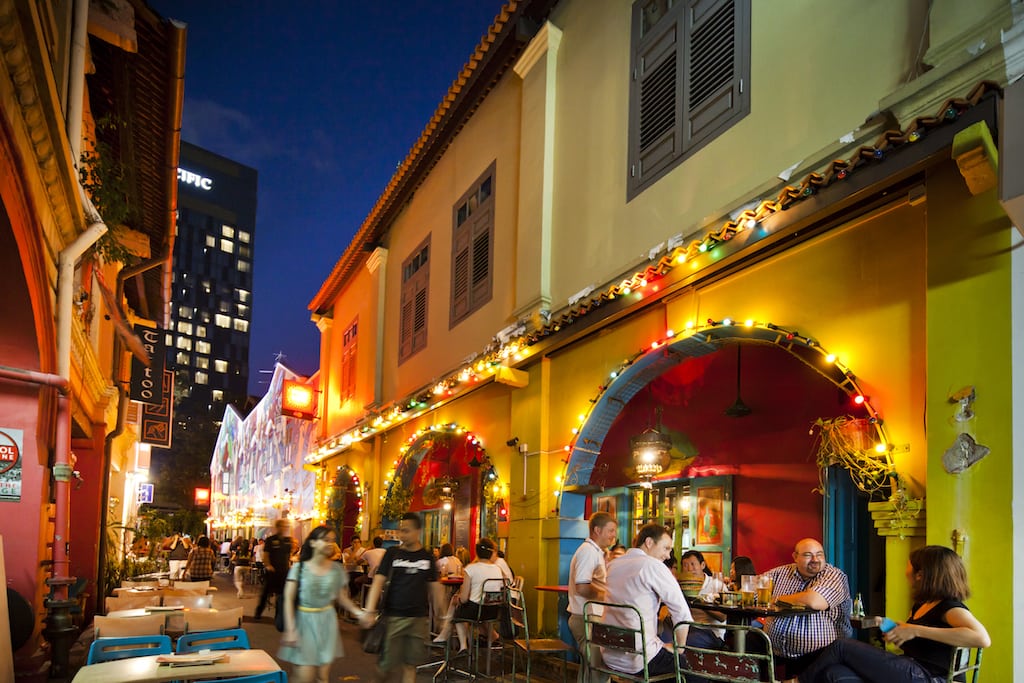Skift Take
With Asia becoming a more popular meetings destination for Western organizations, events professionals need to understand local capabilities and cultural nuances. Often, local assistance on the ground can be the difference between success and failure.
As business travel and the global economy have surged in recent years, the need to hold events and meetings in more diverse locations across the world has increased in tandem.
Multinationals with operations in Asia are increasingly tempted to host events in the region, but are often surprised at the challenges. While many Asian cities look and feel like their Western counterparts, appearances can be deceptive.
“Asia is a diverse region and cultural melting pot, with each country offering very different experiences,” said Fernando Lonergan, BCD Meetings & Events’ Sydney, Australia-based senior director.
This diversity allows organizations “to do something different and give their attendees a truly unique experience”, he explained.
These differences, however, can mean that meetings organizers can’t simply copy and paste their North American or European event plans onto Hong Kong, Beijing, or Ho Chi Minh City. They need to tap into local cultures and expertise in those cities.
The ‘Western City’ of Asia
Singapore, Sydney, Bangkok, Kuala Lumpur, and Hong Kong will be the top five cities in Asia for meetings and events in 2018, according to data from Cvent and STR in a CWT Meetings & Events report, and prices will increase for airfares and lodging by 5 percent over the course of the year.
Singapore is perhaps closer to Western culture and values than any other Asian country, but even there, cultural nuances can determine the success or failure of an event.
Thomas Stecher, director of client relation and innovation at MCI Group Asia Pacific, said Singapore is different from most of Asia: “It has strong Western ties and operates 50 percent Western and 50 percent Asian.”
Stecher stressed that Singapore is a mature events market. “Hotels and venues and food are top level; however, services, especially out of the hotels, need to be managed regularly.”
Nic Tan, director of Singapore-based audio-visual provider Senses AVL, said his country has several advantages for meetings planners. It has an extremely large number of very useable event spaces in a very small area. “We are also one of the most technologically advanced countries when it comes to event equipment used. It is becoming increasingly common to see full dynamic multimedia from sets to keynotes, and all these at a very, very reasonable cost.”
China Is Open for Business
Beijing, China-based Jeff Ruffolo, an American public relations professional who has advised on major events including the 2022 Winter Olympic Games, believes China is a sophisticated market for events planners.
“Twenty years ago, it was really laborious. You had to get approvals from the Ministry of Public Security and the Ministry of Foreign Affairs. Now, it’s effortless,” he said, explaining that all it takes is a call to the sales team of a major hotel to start the planning.
“China is open for business and they have conventions literally everywhere,” he added. “If you wanted to hold a major conference, you could organize it in two hours.”
The major Chinese cities have fantastic infrastructure and venues, abundant cheap labor and excellent food — all key ingredients in event success.
David Thomas, the founder of Think Global Consulting and a recognized China expert, said the Chinese have some particular skills in the events domain, including an ability to run grand-scale occasions. “Opening ceremonies are grand, with red carpets, processions, and photography,” he said.
They also have good technology, including events software, equipment and lighting – and abundant resources and manpower.
For Ruffolo, the single largest challenge is language: “The major weakness is the lack of communicative English that foreigners can understand,” he noted, stressing that it is even more of an issue outside of the major capitals.
Local Knowledge Is Vital
A common Western mistake is ignoring the local calendar, according to BCD’s Lonergan. “For example, Chinese New Year Holidays or Muslim Ramadan need to be accounted for when planning because they could affect many aspects of the event production,” he said.
He also advises clients that not being aware of cultural nuances and customs can easily ruin an experience. “Consider, for example, wanting to wow attendees at an iconic religious monument but not having (permission) to enter.”
The advice from most experts is that it’s important to partner with local professionals. MCI’s Stecher pointed out that “a local presence and local expert will be able to … advise what will actually work and create an amazing event”.
The real threat lies in the unexpected – the issues which are taken for granted in the West, but which may be totally unknown in Asia – and vice versa.
Have a confidential tip for Skift? Get in touch
Tags: asia, meetings, meetingsiq
Photo credit: Visitors having a group dinner in Singapore. Asian destinations are gaining traction for meetings and events from global organizations. Singapore Tourism Board
